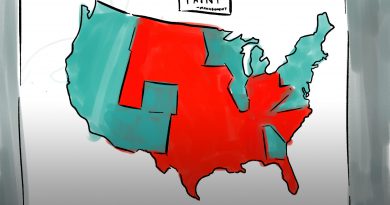SB 540 Dies On Legislative Calendar
The Florida legislative session has ended, and so too has Senate Bill 540.
SB 540 and its House counterpart, HB 831, meant to overhaul the Florida College System, died on the legislative calendar on March 10, a day after the session ended. Initially slated to tie into the state budget, the bills was never brought up for a vote.
With representatives from the College travelling up to Tallahassee to lobby legislators against the bill. Victoria Hernandez, MDC’s director of governmental affairs, attributes the length of the legislative process and the College’s lobbying efforts as the cause for SB 540’s demise.
“We’re very happy and pleased that the bills have not passed,” Hernandez said. She was one of the college representatives lobbying against the bill at the Capitol.
SB 540, or the College Competitiveness Act of 2018, proposed by Senator Dorothy Hukill, was a priority for Senate President Joe Negron, who argued that the bill would allow the college system to be independent compared to the state university system. Critics argued against it, saying it added unnecessary oversight to a functioning system.
If passed, the bill would’ve introduced new performance-based metrics centered on two-year graduations. This would tie base funding for colleges to two-year graduates, even though most MDC students graduate within three to four years, according to Hernandez.
Other elements of the bill included a new state board to govern local colleges, a cap on enrollments in bachelor’s degree programs by 20 percent and renaming the system to The Florida Community College System.
Sen. Negron declined to comment. Sen. Hukill’s office did not respond to multiple requests for comment.
Another higher education bill, SB 4, Florida Excellence in Higher Education Act of 2018, passed during the session. Proposed by Senator Bill Galvano, the bill amended graduation rates for state universities, expanded the Bright Futures scholarship and regulated expressive zones on college campuses.
Hernandez didn’t dismiss the thought of supporting a future bill, though she wants to see the language before making a final decision.
“Any legislator can file anything they want. It depends on how they’re worded,” Hernandez said. “The devil’s in the details.”
The second half of the session was upended as the shooting at Marjory Stoneman Douglas High School prompted calls for gun control legislation to be taken up. SB 7026, dubbed The Marjory Stoneman Douglas Public Safety Act, was passed on March 5 and signed into law by Governor Rick Scott on March 9.




